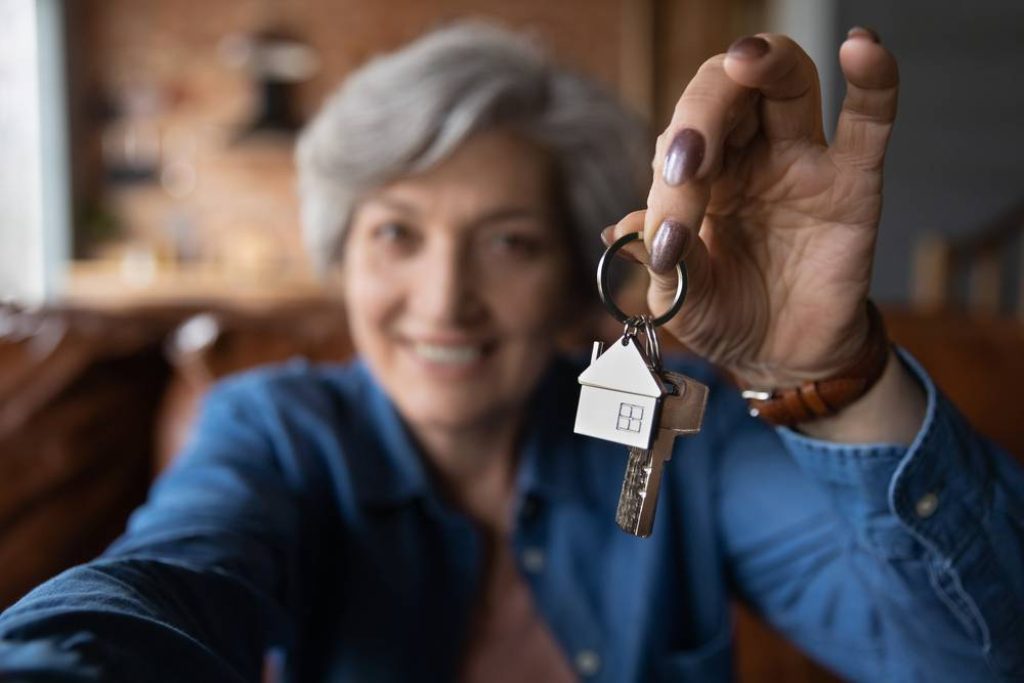
Best 2023 Housing Programs For Seniors
As the cost of living continues to spiral upward, many people including seniors are finding it very hard to make ends meet. The largest expense for most people is for housing, whether it be a rental or a home that you own. The cost of both of these has become exorbitant in most areas of the country.
Related Topics (Sponsored Ads):
Even senior homeowners who have paid off their mortgage and have rid themselves of that monthly mortgage payment, now often find themselves in a financial bind. Because of the high cost of living, many of these senior homeowners end up in a situation of too little income, even without that mortgage payment. Their home still has ongoing expenses such as utilities, property taxes and upkeep. Plus, all the normal living expenses such as food, clothing, medicines are still there. All of this ends up with a result that they have expenses that are more than their social security or other income. Without a large savings or investment “nest egg”, they have a serious financial problem. Thankfully, there are many different housing programs which are discussed below, that can offer seniors assistance in 2023.

Reverse Mortgage (HECM)
More and more seniors are today looking to “age in place” – meaning they want to stay in their family home and not move to another residence. However, as mentioned above, even if the mortgage has been paid off, some seniors still can’t afford all the expense involved. The solution might be a special program for seniors, commonly called a reverse mortgage, formally administered by the federal government as a Home Equity Conversion Mortgage (HEMC). It is called a reverse mortgage because instead of you making payments – you receive money from your home’s equity instead, without having to sell your house. This money is then paid back after you later decide to sell your home or after you pass away. This HECM program is one of the best ways to stay in your home and receive the money you need to meet expenses.
The HECM program is managed by the United States Department of Housing (HUD) and the basic program requirements are:
• Be 62 years of age or older
• Own the property free and clear or have a small mortgage balance remaining
• Occupy the property as your principal residence (you can still own a vacation home as well)
• Not be delinquent on any federal debts (such as income taxes)
• Must attend a consumer information and counseling session given by an approved HECM counselor – in advance of formally applying
• Only available through a HUD approved HECM lender
HUD Section 202 Housing Program
Seniors who are renters or don’t qualify for a reverse mortgage may find financial assistance to obtain affordable housing through the Section 202 program administered by HUD. To be eligible the applicants need to be 62 years old and up, plus they must be considered as low income. Typically this means that your household income is less than 50% of the local area’s median income.
Approved applicants can then get subsidized rental housing, in Section 202 approved developments. These seniors will only have to pay 30% of their net income as rent. These Section 202 developments must meet the standards of appropriate senior housing as set forth by HUD.
Tax Credit Incentive Program
By providing property owners (landlords and investors) with tax credits it acts as an incentive to build and provide low rent residences to low income tenants. The definition of low income is again usually less than 50% of the local area’s median income. Many of these participating properties are specifically for seniors, either over 55 or 62 depending on the individual development.
Government Home Improvement Grants and Loans
Another way the government assists seniors in keeping their family homes are various programs to assist senior homeowners to repair or improve their homes. These programs are especially applicable if the work needed is to fix health and safety issues or make the home more accessible for seniors with mobility problems.
The financial assistance is available through some grants (no repayment) or loans that are often with deferred repayment. The Federal Housing Agency (FHA) manages most of these programs and the federal Veteran’s Administration (VA) runs these types of programs for homeowners who are armed services veterans.
Low Income Home Energy Assistance Program (LIHEAP)
Another huge expense for many senior homeowners is their electric and gas bill, particularly for heating and cooling expenses. The government run LIHEAP assists low income seniors with their heating and cooling energy costs, bill payment assistance, energy crisis assistance, weatherization and energy-related home repairs. Your annual income must be under $20,000 for a single or $27,000 for a couple to be eligible. People already receiving SSI assistance are often automatically eligible for this program. LIHEAP is administered by the U.S. Department of Health and Human Services (the Social Security people).
State Housing Programs
Many state governments also have their own similar programs for residents of their state. Some examples of these are:
– California: Various affordable housing assistance and programs are available through the state’s Department of Social Services. Also, many of the individual local governments (cities and counties) have affordable housing for seniors programs.
– Florida: The Florida Housing Finance Corporation runs several affordable housing programs, foreclosure assistance and other related programs.
– New York: Programs and assistance are available through the New York Foundation for Senior Citizens, New York City’s Senior Affordable Rental Housing and New York State’s Affordable Housing Corporation.




